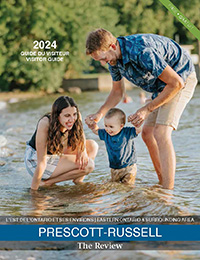Canada’s population is aging and new services are needed to meet the demands of seniors. Donna Maodus and Heidi Salib are health-care professionals who have launched a business called “Timely Life-Plan Conversations” (TLC), which aims to help seniors create a personalized life-plan. It’s not always easy to express how you would want to be treated in a medical emergency and how you want your life to end, but it’s a conversation that the two women say is best dealt with before tragedy strikes.
“People don’t want to look at end of life. Our focus isn’t on death, it’s on reducing the stress and anxiety people have who aren’t prepared,” said Maodus.
It’s not all doom and gloom. The two women say that a large part of what they do is simply identifying if the needs of their clients are being met and if there are services available that could improve their quality of life.
TLC is a private company that acts in a capacity similar to that provided by a social worker. They assess the needs of their clients, help them plan for the future and offer suggestions on areas that can be improved. Every client is different and each report is customized to tailor to the specific needs of the client.
New clients are given a preparatory questionnaire and a list of documents that they will be asked to provide. Then Maodus and Salib meet with the client and interview them about their medical history, their long-term care needs and life wishes. They open a discourse that can be hard for some people to speak about with family, but might be easier discussing with a neutral third party.
Some of the information the women compile seems simple, but is not always easy to find in an emergency. This can include the client’s birth date, address, health insurance number and the name of their emergency contact person. The process also encourages clients to address more complex issues. Maodus and Salib will ask their clients how they feel about organ donation. They will establish if their clients want to be put on life-support in the event of an emergency, and for how long. The report chronicles things like life insurance information, a list of which financial institutions the client deals with and whether they have a notary or lawyer. It also lists funeral arrangements and wishes.
The end goal is to create a comprehensive life plan that can be shared with a future substitute decision maker, a power of attorney (if applicable), family, caregivers and physicians.
All of the information contained in the report is kept confidential. It is up to the client to decide if they want the information to be shared.
“Death is a moment, but we’re living our lives right up until that moment. We make sure that the person we are working with feels confident and secure and that they know what is happening to them,” said Maodus.
Maodus and Salib don’t offer medical advice, but they might help their clients prepare for a doctor’s appointment, chronicle medical conditions and compile a list of the medications they are taking.
“If seniors are taking more than ten medications, they are at a higher risk of certain problems, such as falls, loss of appetite and sense of taste. We’re not medical, but we can see they might be encountering specific problems that they aren’t telling people about. They might think it’s normal. After listening to them we might recommend a consultation with a doctor or a pharmacist,” said Maodus.
She says that communication is key to providing a proper medical assessment and she says it’s a problem for many seniors. If a person is visiting multiple doctors and multiple pharmacies, it becomes difficult to be aware of the complete situation.
“A lot of seniors won’t be able to tell you what medications they are taking. They might be able to tell you the colour, or frequency, but not what they are used for. They might also fail to mention all of the non-prescription and over-the-counter medicines they are taking,” said Maodus.
Having a comprehensive list of your medications to bring with you to your medical appointments and to have on hand in the event of an emergency is something that she says can dramatically affect your health.
It’s also something that both Maodus and Salib saw regularly in their former occupations in the healthcare industry.
Both women began their careers as medical laboratory technologists and then transitioned into medical management. Maodus is the former director of corporate projects for Hawkesbury and District General Hospital (HGH) and Salib is the former director of quality and performance at HGH.
“We have very interesting and diverse portfolios, which gives us a greater understanding of healthcare and the needs of the population. In our jobs we saw that there was a greater need for more service and that it wasn’t being fulfilled,” said Salib.
Last February they launched TLC. So far, they say that the response has been overwhelmingly positive, as they build their client base in eastern Ontario and western Quebec.
Statistics Canada predicts that by 2017 there will be more Canadians over the age of 65 than under the age of 15. The number of seniors increased by more than 14 per cent between 2006 and 2011 and statistics indicate the trend will continue as baby boomers continue to age. People are also living longer.
In 2011, there were 5,825 centenarians in Canada. This represents an increase of more than 25 per cent since 2006.
“If people are living longer, you need to start talking about the future. You need to ask them where they want to live if they can no longer live at home. There are some stages where the decision is still yours to make,” said Salib. In cases where their clients are no longer capable of making these decisions, they can rest easier knowing that their designated care giver understands their wishes.


